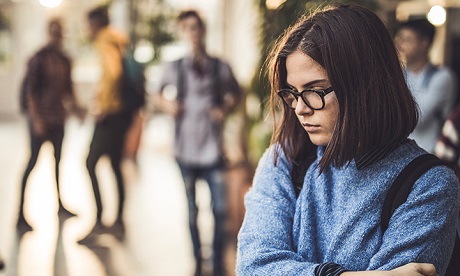Lockdown affected wellbeing for many people, especially young ones, an Otago University study has found.
The study undertaken during lockdown is providing a glimpse into New Zealand’s mental health. Young people in particular found it hard-going.
The study results were reported in a research paper,’Psychological distress, anxiety, family violence, suicidality, and wellbeing in New Zealand during the COVID-19 lockdown: a cross-sectional study’, which was published in the international journal, PLOS ONE.
The Otago University study involved a survey of 2000 people taken in April. Besides almost 40 percent of respondents reporting low wellbeing, the researchers also found about a third of them reported moderate-to-high distress.
About a third of New Zealanders reported significant distress, with rates in younger people (18-34 years) being higher than for older people.
Just over 47 percent of 18 to 24 year olds reported to have severe levels of psychological distress.
More people reported feeling suicidal and there were higher rates of family violence during lockdown too.
There was no difference by ethnicity in the way lockdown affected people: 6.1 percent reported suicidal ideation, with 2.1 percent making active plans, and the same proportion reported having made a suicide attempt.
This was more common among young people, however.
Rates of distress among women and men were similar, which is unusual as often women report higher levels of distress.
The study also found one in five New Zealanders increased their usual drinking habits over lockdown.
The results of the survey provide an interesting snapshot of people’s self-reported psychological distress, anxiety and suicidality captured at the ‘peak’ of the early lockdown period, says Associate Professor Janet Fanslow from The University of Auckland.
She would like to see mental health and family violence response systems resourced to respond to increased need during times of lockdown.
In her opinion Covid-19 response and post-crisis recovery plans need to promote women’s economic empowerment and address gender inequalities in employment and social protection systems.
This will require systemic change to address the underlying causes of mental health issues and family violence whether the country is in lockdown or not.
Setting up such a change would require investment in and implementation of evidence-based prevention strategies to prevent family violence, Fanslow says.
Clinical psychologist Dr Dougal Sutherland says the stresses affecting people during lockdown were probably from more than one source.
“Although the study couldn’t tell us exactly what about the lockdown people found stressful, it is likely that a combination of health anxiety and worry about the potential economic consequences of Covid-19 played a role,” he says.
Dr Susanna Every-Palmer from Otago University says not all the consequences of the lockdown were negative.
Many (62 percent of respondents enjoyed ‘silver linings’ the lockdown offered: working from home, spending more time with family and living in a quieter, less polluted environment.
“Governments should make providing mental health support a similar priority to other health measures, such as contact tracing, provision of personal protective equipment and procurement of ventilators,” she says.
Source
- RNZ
- Image: University Hospitals
For counselling and support
- Need to talk? Free call or text 1737 any time
- Lifeline – 0800 543 354
- Samaritans – 0800 726 666
- Chinese Lifeline – 0800 888 880
(for people who speak Mandarin or Cantonese) - Youthline – 0800 376 633, free text 234 or email talk@youthline.co.nz
(for young people, and their parents, whānau and friends) - What’s Up – 0800 942 8787
(for 5–18 year olds; 1 pm to 11 pm) - The Lowdown – visit the website, email team@thelowdown.co.nz or free text 5626 (emails and text messages will be responded to between 12 noon and 12 midnight)
- SPARX – an online self-help tool that teaches young people the key skills needed to help combat depression and anxiety.
